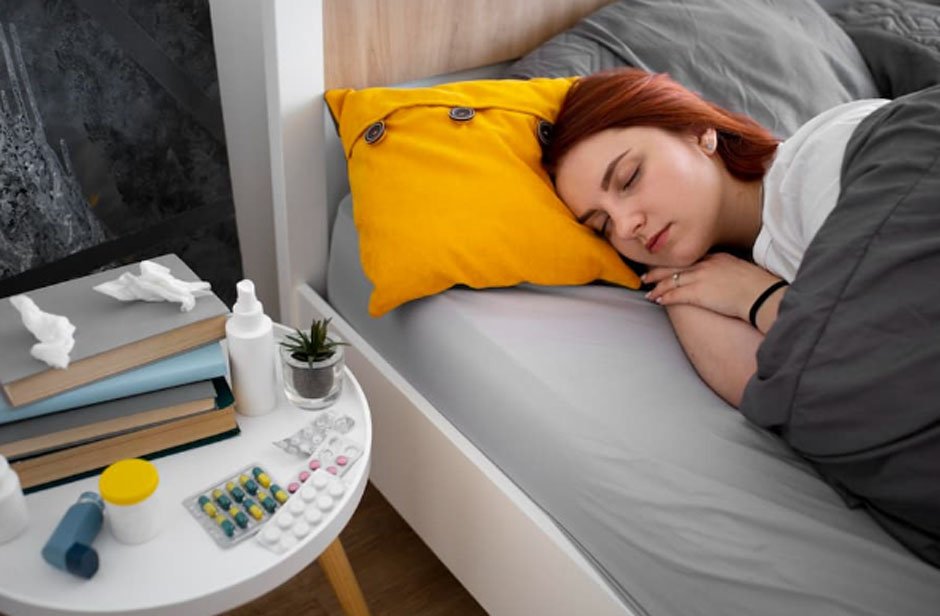How to Maintain a Hygienic Sleeping Environment

Your mental well-being depends as much on a clean and quiet sleeping environment as your physical health does. Maintaining cleanliness in your bedroom helps to relax and improve sleep at home, just as employee assistance program providers foster balance and general wellness at work. A neat, clean environment improves sleep quality, helps to avoid allergies, and lowers tension. Every little effort helps to establish a better sleep schedule, from frequent washing of your bedding to better air flow. Here is how you can build and preserve a clean sleeping area that every evening enables your body to recharge and your mind to relax.
Regularly Wash Your Bedding
Over time, your covers, pillowcases, and blankets accumulate oils, perspiration, and dead skin cells. Left unwashed, they develop into a breeding ground for bacteria and dust mites. Wash your bedding at least once a week in warm water to avoid this. Avoid skin sensitivity by using mild, hypoallergenic cleaners. Every few months, according to the care recommendations, remember to clean your pillows and duvets. Fresh, clean linens help you sleep well and maintain health in addition to smelling wonderful.
Keep Your Mattress Clean and Protected
If not properly maintained, mattresses can catch dust, allergens, and even mould. Maintain its cleanliness and prolong its life with a washable mattress protector. To get rid of dust and trash, vacuum your bed every month. Should you spot stains, wash with gentle soap and water. Before replacing the sheets, make sure the mattress dries completely. You can sometimes expose your mattress to prevent damp accumulation. Your quality of sleep and cleanliness both depend on a clean mattress.
Pick Breathable Bedding
Keeping your bedroom fresh depends in large part on the cloth your bedclothes are made of. Breathable fabrics like cotton, linen, and bamboo absorb moisture and help to minimise heat retention. These fabrics help to stop overnight sweat and bacteria buildup. Steer clear of synthetic fabrics that retain moisture and heat because they might cause your mattress to be clammy or tacky. Selecting natural, airy fabrics guarantees enhanced ventilation and keeps your sleeping space sanitary and cold.
Maintain Good Air Quality
Fresh air helps you to sleep better and helps to eliminate stuffy smells from your room. Open your windows every day to let in sunshine and fresh air. Naturally inhibiting mould development and killing bacteria is sunshine. Consider using an air purifier if you live in a dusty or polluted environment. Filters out dustborne allergens, animal dander, and other airborne particles. Keeping certain plants, such as snake plants or peace lilies, will also help naturally purify the air. Your wake-up feeling of freshness changes dramatically with clean air.
Tidy and Dust Every
A clutter-free bedroom looks quiet and stays cleaner. Allergic reactions can be caused by dust gathering on furniture, decorative items, and surfaces. Twice a week, include your headboard, lights, and bedside tables in your routine dusting of your room. Often vacuum rugs and carpets; mop difficult floors to reduce dust. Keep needless items or stacks of clothing far from your bed. Besides better hygiene, a neat, dust-free environment allows your brain to unwind for more restful sleep.
Pay Attention to Your Pillows and Curtains
Though they contain pet hair, dust, and microorganisms, pillows and drapes often get overlooked during cleaning routines. Every few months, clean the pillows themselves; weekly, wash your pillowcases. Keep your pillows clean for longer by means of walled pillow covers or safety covers. Particularly if you leave windows open, curtains ought to be vacuumed or cleaned often. A clean cloth close to your sleeping area keeps your room smelling fresh and stops allergens from flying around.
Avoid Eating or Drinking in Bed
Though it’s tempting to munch while watching a show in bed, food spills and crumbs draw insects and smells. Tiny spills can cause stains and bacterial accumulation as well. To preserve cleanliness, keep eating areas distant from your sleeping area. Should you mistakenly spill anything, let the area dry completely and clean it at once. Preserving your bed solely for sleep enables your brain to link it with sleeping rather than with monitors or snacking.
Conclusion
Though the advantages are enormous, keeping a clean sleeping area does not need much work. Clean bedding, fresh air, and a clutter-free room provide a calming environment where your body and mind may fully rest. Better sleep is made possible by regular cleaning, which also shields you against skin rashes and allergies. Following these easy routines will guarantee you a better, fresher, and more cosy night of sleep every night. Your bedroom is more than just a place to sleep; it is your private haven for replenishment and calm.
Last modified: November 7, 2025

